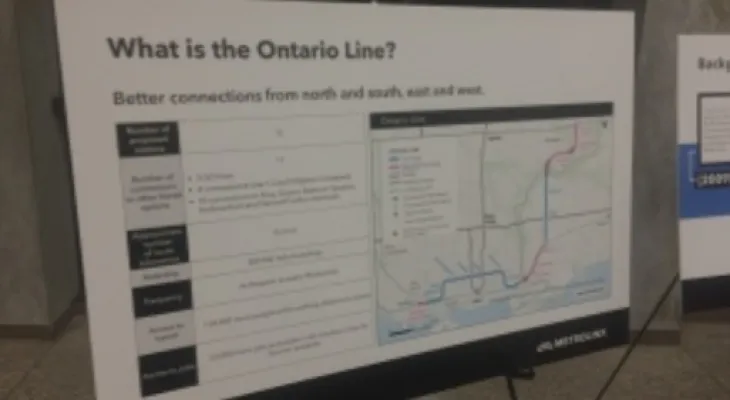Search here
Newspaper
Search here

Arab Canada News
News

Published: November 27, 2022
The cost of building the Ontario line has almost doubled from initial estimates and could exceed one billion dollars per kilometer.
When the Ford government first unveiled plans for the 15.6-kilometer relief subway line in 2019, it pegged the cost at $10.9 billion and said it would be completed by 2027.
However, new documents released by Infrastructure Ontario this month show that two contracts worth $15 billion have already been awarded for the project, which is now expected to be completed in 2031.
Requests for proposals (RFPs) were also issued for two other contracts to build the northern portion of the line. Infrastructure Ontario had previously suggested that these contracts, once awarded, would add between $1-2 billion each to the total cost. This in turn could raise the price to $19 billion.
"It's a huge shock and it should be a shock to people," NDP infrastructure critic Jennifer French told CP24 this week, adding, "I think taking inflation into account is, you know, a realistic thing to talk about, but blaming it all, no one buys that."
One of the biggest factors driving up the cost of the Ontario line is the contract awarded to a consortium of companies to operate and maintain the system over the next thirty years.
Metrolinx also previously estimated this contract at more than $2 billion, but when the contract was officially announced on November 17, its value rose to $9 billion.
The other contract to build the southern portion of the line from Exhibition Place to the west side of the Don River was initially pegged at $4 billion but came in at $6 billion when announced earlier this month.
In a statement to CP24, a spokesperson for the Ministry of Transportation said that "construction projects around the world are facing economic challenges with rising inflation costs and supply chain shortages," a phenomenon "not unique to the Ontario line."
However, French told CP24 that the Ford government owes taxpayers a more comprehensive explanation.
She also expressed concern that the latest documents released by Infrastructure Ontario have pushed the estimated implementation date of the final project agreement by two years to 2026.
Comments